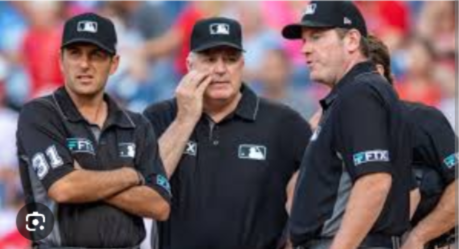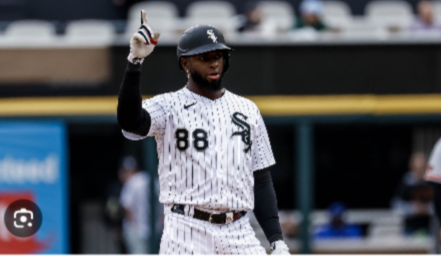MLB Umpires Express Concerns Over Safety of Communication Devices Amid Middle East Incident
In a rare display of anxiety among professional sports officials, several Major League Baseball (MLB) umpires have raised concerns about the safety of wearing communication devices during games, following an alarming incident in the Middle East where similar devices were weaponized and remotely detonated.
The scare stems from a widely reported situation in which communication earpieces used by law enforcement in a Middle Eastern conflict zone were hacked, leading to devastating explosions that injured and killed personnel. Though no direct threats have been made to U.S. sports officials, the unnerving event has left many umpires questioning the security protocols surrounding the technology used in MLB.
“We understand that these devices help us communicate quickly and efficiently on the field, but after what we saw overseas, some of us are uneasy,” said an anonymous veteran umpire. “We just want assurances that everything is safe.”
Umpires in the MLB use wireless earpieces and microphones to communicate with each other during games, especially when coordinating complex calls or reviewing plays. The system has become a vital part of officiating, reducing on-field confusion and speeding up decision-making.
However, in light of the recent Middle East incident, where hackers reportedly weaponized communication gear, umpires are calling for increased security measures. Some have gone so far as to request a temporary return to traditional on-field communication methods—such as hand signals and in-person conferences—until the league can guarantee the safety of their equipment.
Security experts have stressed that the likelihood of such an attack happening in the U.S., let alone during a sporting event, is extremely low. MLB has also reassured officials that their devices operate on secure networks with multiple layers of encryption.
“While we understand the concerns, we want to be clear that the communication systems used in MLB games are safe,” said a league spokesperson. “We are working closely with our technology partners to ensure that no vulnerabilities exist and will continue to monitor the situation closely.”
Still, the psychological impact on umpires is palpable. “You just don’t know what could happen in today’s world,” said another umpire. “It’s not just about the game anymore; it’s about personal safety.”
Fans and players alike have noticed the growing hesitation among umpires, with some even delaying the start of games to inspect their communication gear more thoroughly before stepping onto the field.
“I get it, the world is changing,” said Red Sox manager Alex Cora. “These guys need to feel safe out there, just like we all do.”
While no official changes have been made to MLB’s communication protocols, league officials have acknowledged that they are in active discussions with security experts and could implement additional safety measures, such as regular system audits or enhanced signal encryption.
For now, umpires will continue to use the devices, but the incident has sparked a broader conversation about technology, security, and the evolving nature of safety in the modern sports world.
As the league seeks to calm fears, the hope is that fans can soon return to focusing on what matters most—the game on the field—rather than the potential risks in the stands.



